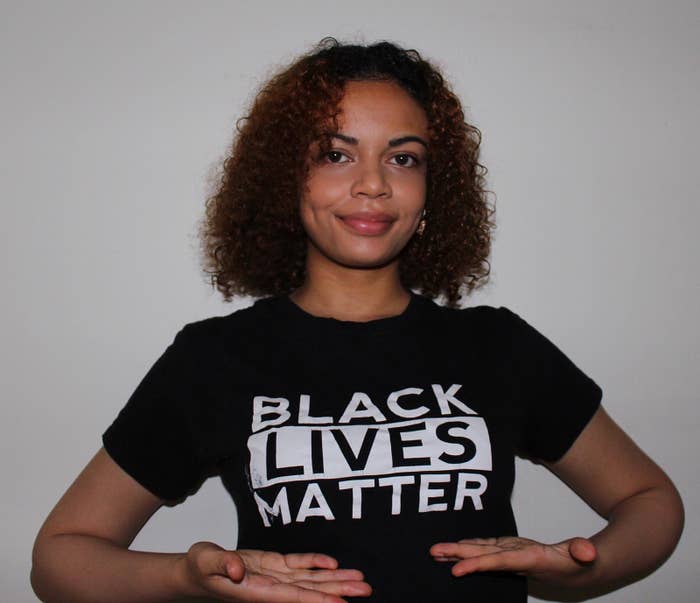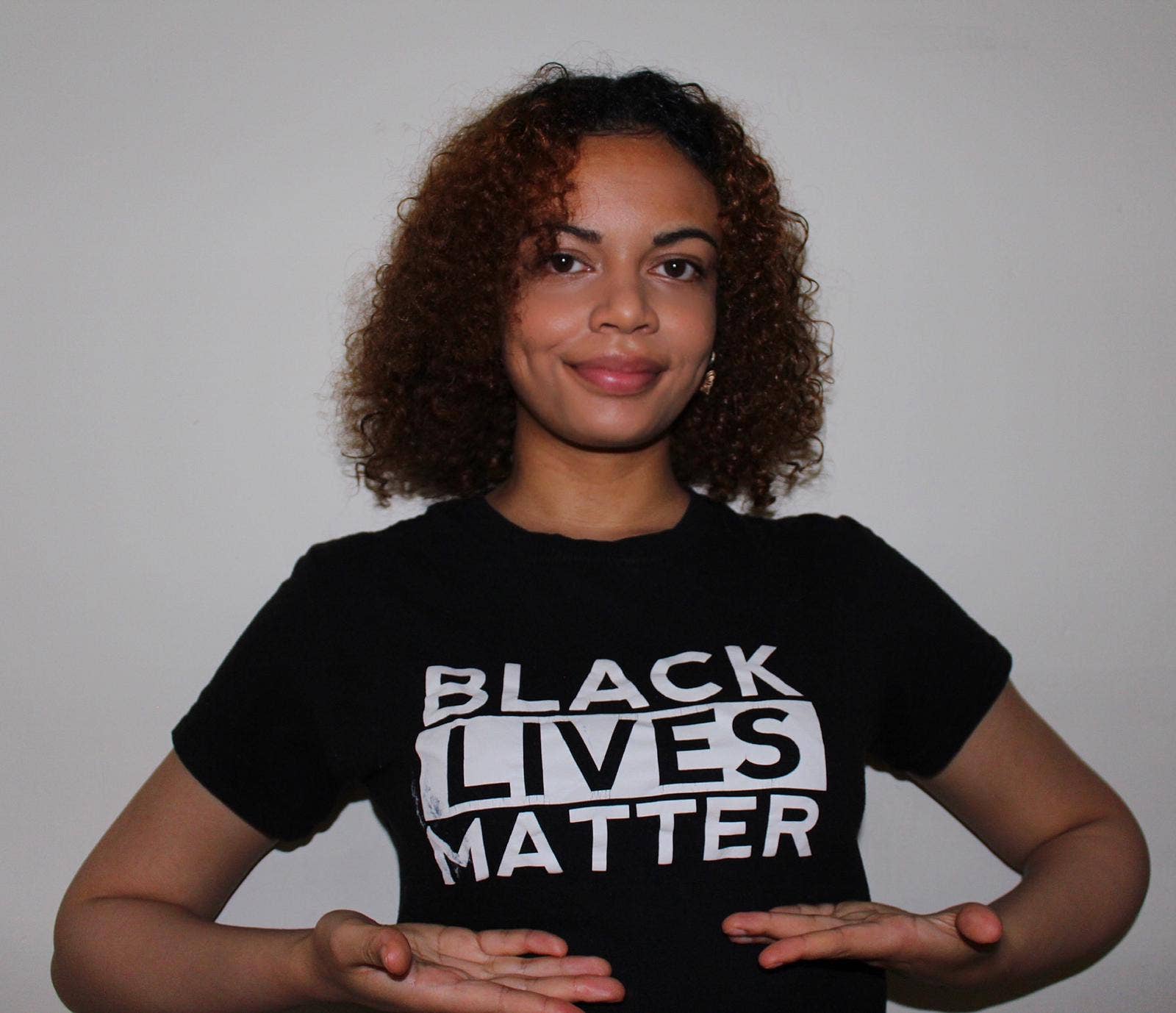
On May 25, 2020, a 46-year-old black man by the name of George Floyd was callously murdered by police out in Minneapolis, Minnesota, spurring a chain of events which continues to shake the world today. Surrounded by three other colleagues, officer Derek Chauvin fixated his knee on Mr Floyd’s neck for eight minutes and forty-six seconds, causing him to lose his life in what should have been a fairly routine stop over the accusation of a fairly petty crime.
This murder, along with the killings of Breonna Taylor, Tony McDade, Rayshard Brooks and more, have spurred on the largest Civil Rights movement that we’ve ever seen, with Black Lives Matter protests happening across all 50 states in the USA, and 18 countries across the world—including Greece, Australia, Japan and Britain. The spark of protests in the UK, from London to Liverpool to Manchester and Bristol, have been emotional to say the least, as black Brits everywhere unite to discuss their own relationship with systemic racism. And at the heart of it all are young, vibrant and passionate campaigners doing the work on the frontlines.
Officially launched in 2016 after the police murders of Alton Sterling and Philando Castile, the UK arm of Black Lives Matter has shown that this issue transcends location when our people are being slaughtered by those in power. But if we want to keep it local, for those who question BLM UK’s validity, this country is far from innocent when it comes to police brutality and seeing any form of justice. We caught up with Aliyah from Black Lives Matter UK, and Sophie, Ore and Tyrek from All Black Lives UK over Zoom, to find out why this powerful movement is so important for Britain today and for future generations.
“It’s important that the work continues past 2020 because when you’ve had systems that have been built for over half a millennium, one year, one month, one hashtag isn’t going to end it just like that.”—Tyrek
COMPLEX: Aliyah, let’s start with you: when and why did Black Lives Matter UK begin?
Aliyah: There’s actually a long history of BLM UK: it started in Nottingham, with the work done by Bright Ideas: Nottingham, around 2014. There were a couple of events that were put on and organised and then, in 2016, when Philando Castile and Alton Sterling were killed, there was a new surge of protests across the country, and that’s when a lot of the current formation of BLM UK were brought into focus. So there was a London group, a Birmingham group, Leeds, Nottingham, Manchester, and various different chapters across the UK.
Why do you think a British arm of this movement was needed?
Aliyah: Whilst being mobilised by the work that was happening in America, a lot of the organisers were doing work around black lives in the UK, and what that meant—whether historically or currently. The branches developed because people were tired of the police brutality. We’re the people who’ve seen Mark Duggan being killed with no justice for it. We’d heard stories from family members of dealing with the police and were very aware of that element of it, but then also very much the institutional racism we face everyday. A lot of people have come from alternative activist spaces—myself from the art, history and curating space—so we brought those different skills and thought, ‘What would that mean if we organise protests? What would it mean if we organise different initiatives in our communities?’
There’s a whole team behind BLM UK now, but why did you personally decide this is something you wanted to do for the community?
Aliyah: When I organised the protest in Birmingham with my friend, Olivia Brown—the realest G who came up with the vision for the protest—I had no idea what was going on or how to even be a part of BLM UK. I was just organising in Birmingham, minding my own business. Then I was approached by someone who’d been doing movement building across the UK, but was from the States and was in contact with people from the US—an absolutely incredible person. They put me in touch with some of the other groups, and when actions were being organised across the country, I just started linking in because of this protest we’d done. Then family members in Birmingham, like Kingsley Burrell’s family, just started calling me and talking about their campaign against the IPCC and various other elements of what this organising work became. I was 19, and it was very overwhelming at the time. I ended up in the organising group and kind of just fell into it—like a lot of people do. Because this is life’s work, and inside and outside of it, I continued my work of always focusing on the black community—whether it’s in event spaces, curation, exhibitions and so on. It very much made sense that it aligned. Moving forward, I got involved with the organisation because you can’t just sit and watch sometimes. When you’re aware of how much you contribute to a particular movement or organisation, I think that’s the best place to move from.
What are your personal experiences of injustice?
Aliyah: I’m a black, working-class Muslim woman. There are many things that have popped up, even when I didn’t know. Whether it was people from the brown community, or whether it was white supremacists shouting Islamphobic slurs in the street, there have been multiple incidences when my blackness has been projected onto me or I’ve been racialised. Some of them are a lot more insidious because we live in the UK; from the things that teachers tell you, like you’re not gonna get above a certain grade, then you go and get straight A*s! The racism here has been so nuanced... I’ve also had instances of overt racism, but it’s sort of a culmination of the frustration with all of it.
Why do you think the world has resonated so much with Black Lives Matter in this particular instance?
Aliyah: When we’re talking about the protests that exist right now, there’s definitely been a reaction that’s been intensified by the current conditions we’ve been in. If you think about the fact that we’ve been in a COVID-19 landscape for the last three months, a lot of people are already frustrated and tired and want to mobilise and do something. They may have also just had loads more time to read and consume more information, and to be savvy as to how white supremacy works and functions. So I think the way we’re seeing the protests organised and developed during the midst of a pandemic definitely shouldn’t be excused from the current context we’re in and the intensified emotions; we’ve all had time to really deep what’s going on in the world. I don’t think that we should completely say that this is a reaction from COVID-19, but the pandemic has really shown the institutional racism that we face in the healthcare system, and I think some of the energy that we’re seeing is a frustration and a tiredness of not being listened to, not being believed, and not being heard.
Why do you think the British public dislike the methods of Black Lives Matter so much?
Aliyah: Well, I think the majority is definitely affected by what our government thinks and supports. The fact that BLM is on the UK Terrorism Organisations list for saying our lives matter is absolutely ludicrous, but again, is something that this current right-wing, fascist government believes, and so the stories that are made up permeate the majority of this country. That’s how we start to institutionalise the ideas and the prejudice of a group of people, and make this a whole countrywide view and opinion—to the point that Afua Hirsch can be told to go back to where she comes from if she doesn’t like it here. It’s that type of spin that means they never really wanted us here anyway, even though the country was built literally on our backs. In terms of the methods, they dislike the methods because they don’t understand why these things are happening, because they’ve never affected them before. It’s super key for us to point out the fact that them being affected by what is currently happening, whether it’s statues being toppled or their own racism being brought into question, is why we’re seeing so much of a reaction. When people are being faced with themselves, often their reactions are ones of denial, derailment and discomfort. And so, with those three emotions being thought about, I’d really just urge white people to sit with them and think about why they’re feeling these feelings instead of projecting and lashing out. When we’re uncomfortable with the methods or the tactics, we will often derail them without even trying to understand or believe them, and I think that’s a lot of what we’re seeing at this time. People don’t like what they’re seeing because they’re uncomfortable with it, but they also don’t know another way or have enough knowledge to know why these things are being done in the first place.
“It’s definitely going to be hard, but it can only progress further from this point onwards.”—Sophie
Sophie, why is it important that this extends beyond 2020?
Sophie: We’re in this for the long haul, and it’s important to note the fact that this is not gonna end anytime soon if changes aren’t being made. As the youth of this generation, I think it’s very important that we pass on the message—as we’ve stated before, this is just the beginning. It’s been 400 years and racism still continues, so I definitely think that making sure people are aware of racism in the next generations is important. We want our kids to know, our grandkids to know, their kids to know, that racism should not be acceptable in any way, shape or form. As of now, in 2020, racism is becoming justifiable. People are using, “Yeah, it’s racist, but…” and I think that should no longer be accepted. We shouldn’t have our voices suppressed. We shouldn’t have to feel as if we don’t have a voice, because we do. We’re all human beings. And we don’t want this fire to run out, either. We don’t wanna give up on something that has so much scope if we keep fighting.
So what comes next, past this point?
Sophie: We’ve got loads of things planned that are inclusive of the communities that we stand for. We’ve created our demands, which also list the things that we feel will change a lot of the issues that are happening now and perhaps even resolve them—or be a start of some form of reconciliation—of all black lives vs the oppressors, in that sense. I definitely feel that we’ve got many, many that we’re going to work on and bring to fruition, and it will only get better from here. But it’s definitely going to be a struggle. It’s definitely going to be hard, but it can only progress further from this point onwards.
Ore: We’ve got big things planned. As of right now, we’re primarily focused on protesting and making sure that the government hears our demands. Past that, we want to—as an organisation—sow into the black community, in different ways. But I don’t wanna shed too much light at the moment, just because we want to put things in place for those things to happen.
Tyrek: It’s important that the work continues past 2020 because when you’ve had systems that have been built for over half a millennium, one year, one month, one hashtag isn’t going to end it just like that. It’s been built around this, and it’s gonna take a while to do so but it’s important that we continue past 2020, because there’s a lot of work to do. We’re not a fad, we’re not a trend—we’re a movement for change. And if it happens after the day we die, then so be it, but the change has to happen constantly.

